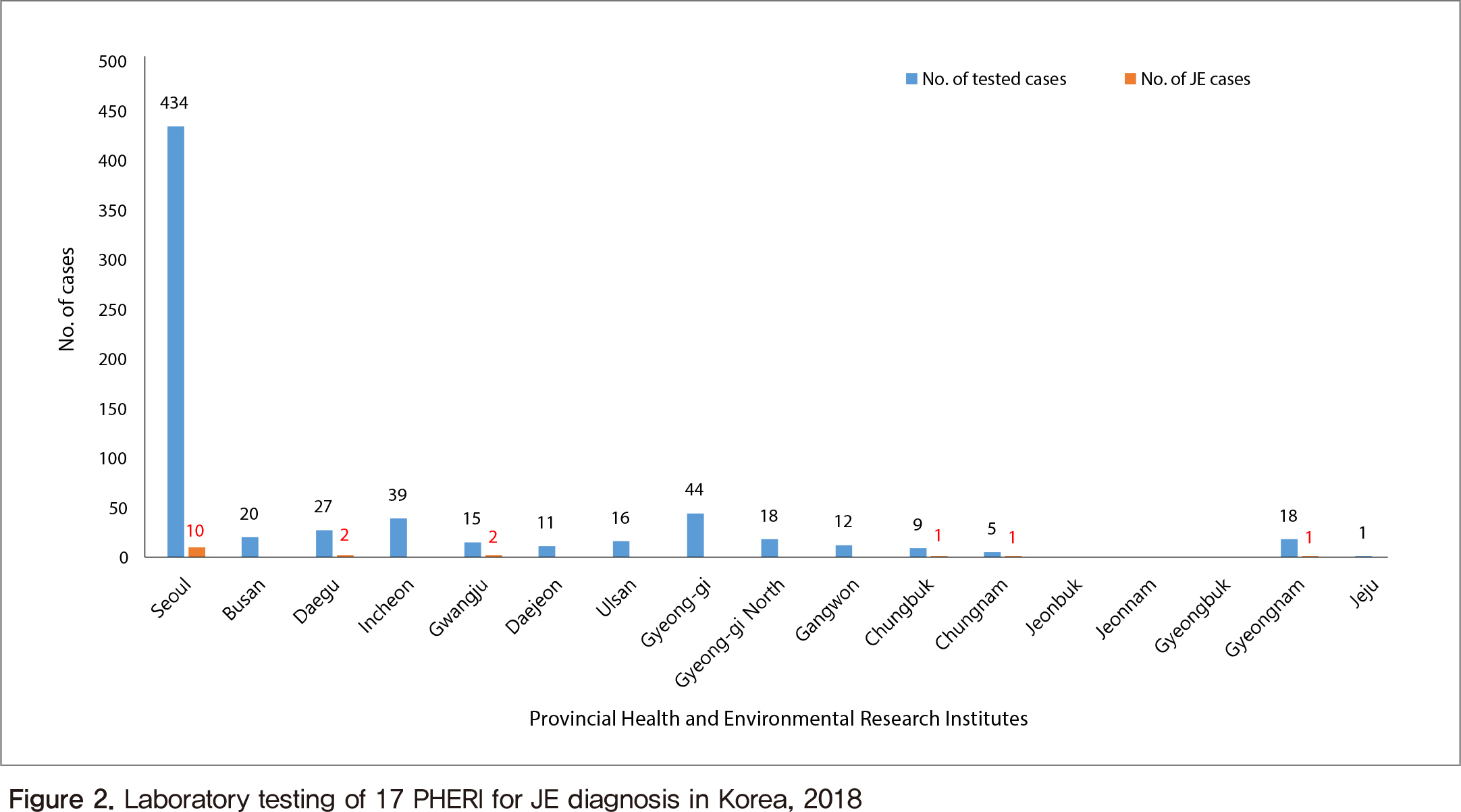contents area
Public Health Weekly Report
detail content area
- Date2019-08-22 19:04
- Update2019-11-19 18:33
- DivisionDivision of Viral Diseases
- Tel043-719-7053
Laboratory-based diagnosis of Japanese encephalitis in Korea, 2018
Lee Hyeokjin, Lee EunJu, Choi Wooyoung, Han Myung-Guk
Division of Viral Diseases, Center for Laboratory Control of Infectious Diseases, KCDC
Japanese encephalitis virus (JEV), a mosquito-borne zoonotic pathogen, is one of the major cause of viral encephalitis. JEV is divided into five genotypes (genotype I, II, III, IV, V), based on the nucleotide sequence of the envelope gene, and three genotypes (I, III, V) of JEV were confirmed in Korea. Laboratory testing for JE was conducted by using real-time RT-PCR, IgM ELISA, IFA (indirect immunofluorescence assay), PRNT (plaque reduction neutralization test), and virus isolation in cell culture in serum and cerebrospinal fluid. A total of 17 JE patients were confirmed by serological and molecular tests in 2018. Two JEVs were detected by real-time RT-PCR and were found to be genotype V of JEV. In addition, we have isolated JEV in LLC-MK2 cells from cerebrospinal fluid of the encephalitis patient in 2018. The complete nucleotide and amino acid sequences of the isolate have been determined. Based on our data, genotype V of JEV is circulating in Korea.
Keywords : Japanese encephalitis, Japanese encephalitis virus, genotype V, virus isolation



 This public work may be used under the terms of the public interest source + commercial use prohibition + nonrepudiation conditions
This public work may be used under the terms of the public interest source + commercial use prohibition + nonrepudiation conditions